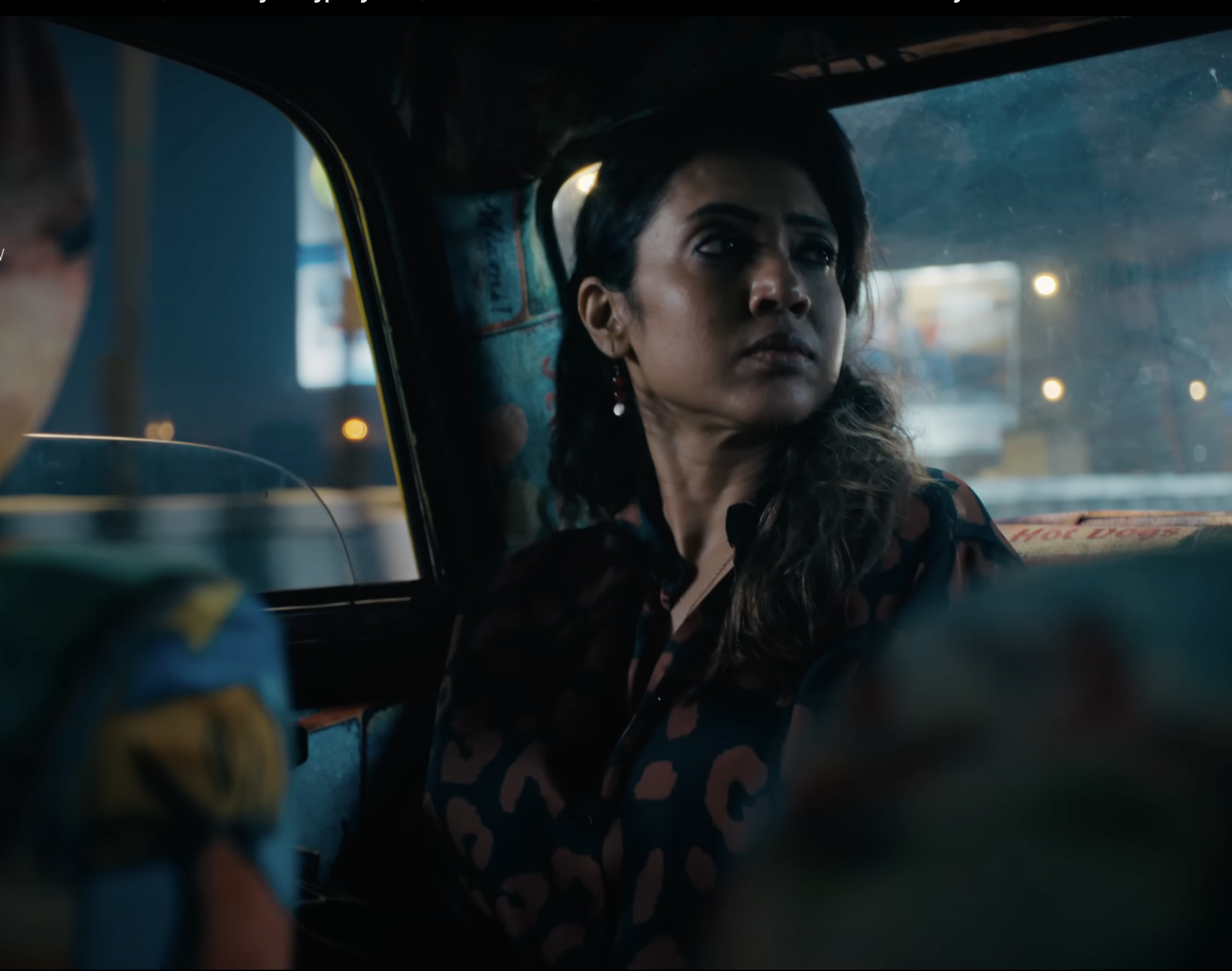Kanu Behl as a director is a mystery, in that his delving into genres and their templates, especially the neo-noir, goes so far off that it starts feeling like an edgier approximation of actually cool ideas. Both Behl and co-writer Ishani Banerjee’s idea is sound, i.e., to explore the nexus of journalism, the 2G scam, and the underworld through the perspective of a cog in the proverbial journalism machine: the old, grizzled newsman. Except, unlike most of these newsmen in movies related to journalism, Joy Bag (Manoj Bajpayee) in “Despatch” (2024) is not a righteous man, carrying a torch about the truth of journalism.
Bag is a relic of the past, comfortable in using technology as a means of communication (Nokia phones with QWERTY keypads), but miffed at the proliferation of technology creeping into his workplace, as that would entail news becoming more and more dependent on instantaneous reportage, rather than being shaped meticulously via weeks of on-ground journalism. His aversion to technology is also expressed directly when he is deep into the investigation of the conspiracy leading to Bag disguising himself as a member of the administrative team sent to investigate the servers of the Vigilance Department. Still, he is caught red-handed simply because of his ineptitude with technology.

Bag’s aversion to technology is contrasted with his ability to manipulate. While he is weak-willed and very much prone to avoiding confrontation, he is very much a man governed by his vices of beautiful women, to the extent that he manages with a younger reporter—who is also his book agent—while trying to fend off his wife’s attempts to salvage their marriage. Still, he is not above enjoying a one-night stand with an ex-protege.
But this does encapsulate both the boon and vice of the film itself. The film is very much shown through the perspective of this flawed character, with the convolution experienced by the viewer riding along with Bag as he delves deeper into the conspiracy of the plot. The vice of the film, though, seems to be Behl’s luxuriation in the depiction of Bag’s debauchery. Prudishness governing my critical faculties regarding judging a film is not the norm. However, I won’t lie about raising my eyebrows at the depiction of sexuality with a gaze that could almost be described as leery.
This also renders many of the female characters as stock characters for Bag to manipulate to meet his ends, either personally or professionally. This is contrary to most classic noirs and the best of neo-noirs in general, where the female characters employ and weaponize their sexuality as both a means to their ends as well as an expression of freedom against the shackles of society.
Credit goes to Shahana Goswami’s performance for convincingly portraying Shweta Bag’s vulnerability and sadness, as well as her attempts to salvage her marriage with a depth that the screenplay occasionally lacks. Interestingly, characters like Prerna (Arrchita Agarwaal) would express their independence, having grown wise to the wiles of Joy, but ultimately his manipulation and charm are strong enough for them to return to his side, which renders that former scene utterly inconsequential.
But even with all that, Bajpayee’s performance as Joy completely holds this film together. He manages to emulate the slimy, sniveling nature of Bag very well. In one of the first scenes of Bag joining a police raid, being punched by one of the perpetrators, cradling his broken and bloody nose, and crying profusely, Bajpayee seamlessly executes the thesis statement of Bag as a character and manages to execute the blackly comic moments in the film as well.

The film finally gets into the conspiracy of the plot, connecting so many disparate strands that by the second half it stops attempting to balance the personal and professional lives of Bag and instead depicts the professional dilemma being faced by Bag as he finds himself getting deeper and deeper into the conspiracy.
The joy of a noir is always in tracking the convolution of the plot, but with the caveat that the protagonist’s journey integrated within the convolution is ultimately more important than the plot entanglement. Bahl and Ishani Banerjee’s idea regarding the plot of the film calls back to many instances of the crime world—be it scams to the tune of billions of dollars, the nexus of the underworld, or journalism as a whole—but by the time the movie reaches towards the end, it feels surprisingly lacking in details.
It is so interesting in the cloak and dagger and the shell companies involved within the plot that it ultimately loses the connection of Bag with the entire endeavor and thus your engagement with the film. The ending of the film is nihilistic, but because the film wants to be both a character study and a neo-noir piece, it becomes bloated, and as the film wobbles towards the finish line, the impact of the ending is strangely hollow.
From a filmmaking standpoint, especially regarding the handheld nature of the chase sequences, as well as the claustrophobia within the darkened, neon-lit world of Mumbai, “Despatch” stands out. It also stands out because the film isn’t lost in its self-importance, unlike Behl’s previous endeavor, but it does share some of the indulgences of that film, which seems to have become a hallmark of the director. It’s Bajpayee who acts as the connective tissue, rendering a compelling performance of an extremely unlikeable figure.








![Wandering Earth Netflix [2019] Review: A disappointing Hollywood disaster flick with a Chinese flavor](https://79468c92.delivery.rocketcdn.me/wp-content/uploads/2019/03/Wandering-Earth-2019-High-On-Films.jpg)
